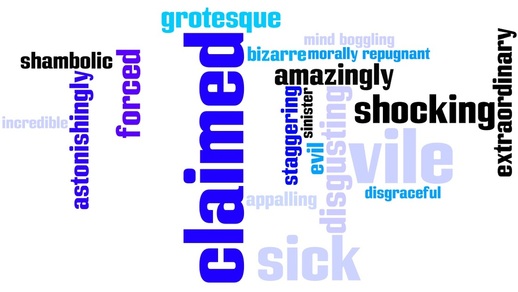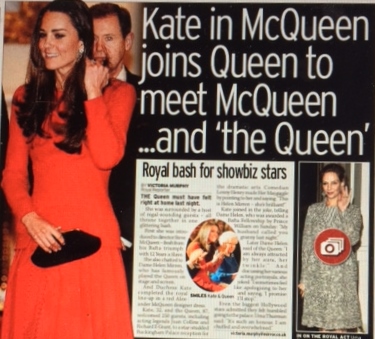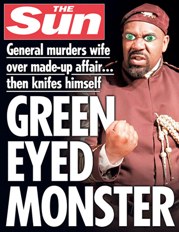Please stop telling me what to thinkFriday 21 February, 2014
Why do newspapers treat their readers like idiots incapable of coming to any sort of judgment on anything for themselves? This morning's Daily Mirror splash is built upon a photograph of a little girl holding a rolled-up £20 and a photograph of a woman in a bikini. There is a line of cocaine and a razor blade on the photograph. At the time the shutter clicked, the child may not have known what the drug was, what the note was for, or whether there was any significance to the picture she was holding. Her fate afterwards is not recorded. But it doesn't take Stephen Hawking to know that the combination is all wrong - especially as this picture was taken in a paedophile's bedroom. The Mirror is not going to risk the reader missing the importance of the shot: 'BEYOND BELIEF' screams the heading at the bottom of the page, under a secondary headline that says 'This sick picture of a four-year-old girl holding a line of cocaine was taken by Lostprophets pervert Ian Watkins...in his bedroom. Shockingly, it was first shown to cops SIX YEARS AGO' What is beyond belief? That a man who is in jail for 29 years for repeated child sexual abuse might take a photograph of a fully clothed little girl with some drugs? I can believe that quite easily. That the police were told six years ago? Well, I don't find it surprising that no action was taken on the basis of one photograph. The response - or lack of it - is, however, under scrutiny by the Independent Police Complaints Commission. The story is a decent enough tab tale, it's the language that gets SubScribe in a bate. The sick picture. The shockingly. The sickening kicker for the caption. The front-page copy is written straight with no superfluous adjectives and adverbs. But inside the bile is spattered all over the page. The page 1 picture is repeated, along with two inset photographs of Watkins, one of the woman who went to the police and a ragout. The kickers are 'shock image', 'vile', 'predator', 'sick' and 'fury'. Come on. We know he's not a nice man. It was the same the other day in the Mail splash about the Labour trio and the paedophiles: vile, notorious, predatory, scandal, astonishingly and two shockings in the first six pars.
Once we get to the inside spread the words come tumbling out still faster: extraordinary, bizarre, grotesque, appalling, morally repugnant, deeply troubling, very murky, revolting, amazingly, disgusting, morally bankrupt... and so it goes on. Please! Didn't anyone ever teach these people that old lesson, 'never describe someone as famous' - if they are it's unnecessary, if they aren't it's untrue. The same applies to all this. The Mail and Mirror are far from the only offenders. SubScribe could have found similar examples in dozens of stories this week. Few have the same affection as the Mail for the word 'vile', but every paper is culpable. The broadsheets tend to offend through their choices of verb, rather than adjective or adverb. 'Claimed' is the most common; 'forced' another favourite. Convicted prisoners in Pakistan may not like weaving carpets, but to say - as the Independent did yesterday - that they are forced to do this and other 'menial work' is to invite the reader to think ill of the country's penal system. It may or may not be a good system, but a ban on mobile phones and the requirement to work in a local factory don't seem to add up to the draconian regime suggested by the text. Adverbs should be unnecessary if the right verb is employed. Adjectives should also make themselves scarce. It is the describing words that sensationalise stories which should be strong enough to stand on their merits. And that's what gets our Press a bad name. Let the readers make up their own minds. Really. |
|
|







